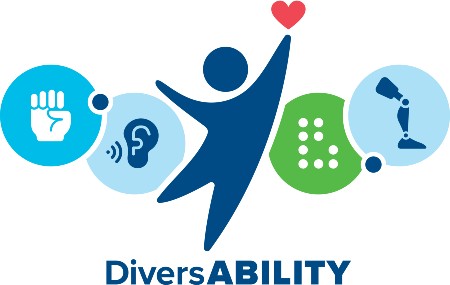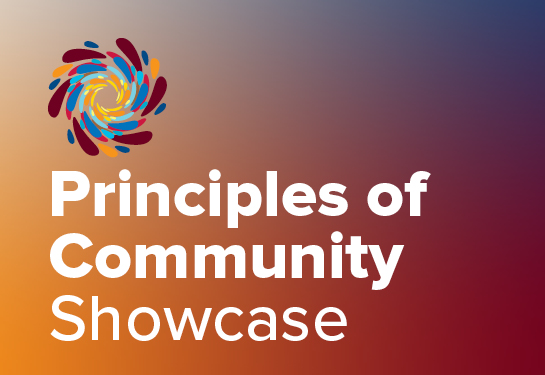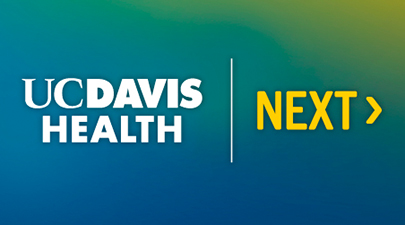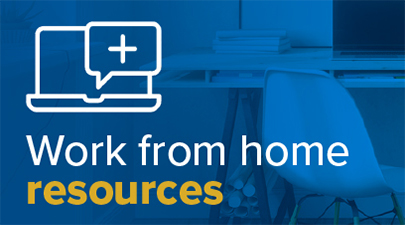In their own words: What employees with disabilities wish you knew
National Disability Employment Awareness Month may be over, but living with a disability is year-round.
According to the Centers for Disease Control and Prevention (CDC), one in four adults (at least 60 million) in the U.S. live with a disability. The CDC defines a disability as, “any condition of the body or mind (impairment) that makes it more difficult for the person with the condition to do certain activities (activity limitation) and interact with the world around them (participation restrictions).”

To highlight employees’ perspectives, 20 members of the DiversABILITY Employee Resource Group at UC Davis Health recently took an anonymous Qualtrics survey to share their experiences with disabilities in a work environment.
Survey themes
The survey responses revealed five prevalent themes:
- Feeling misunderstood
- Experiencing judgment or disbelief
- Encountering fatigue and emotional exhaustion
- Accommodations viewed as unnecessary or “special treatment” by people at work
- Feeling compelled to conceal or downplay one's disability
Feeling misunderstood
Many survey participants, especially those with invisible disabilities, expressed frustrations about not being believed, seen or understood.
One participant shared, “It has created isolation within my unit. I feel misunderstood and ostracized because my brain does not process things the same way as others. Also, it has created tension between me and coworkers because they assume that I do not want to work or that I am getting special treatment.”
Assuming people with disabilities are seeking “special treatment” is, unfortunately, all too common.
Assumptions, judgments cause harm
Several people commented that others assume they are faking or exaggerating the extent of their disability, wishing people would take the initiative to seek understanding of individual challenges.
Whether or not you live with a disability, making assumptions about disabilities can cause harm. Furthermore, everyone at some point in their life will experience a disability.
One participant mentioned, “I wish people took time to learn about different disabilities and not make assumptions. Don't assume I can do something because you can, and don't assume I can't do something because I have a disability.”

Another participant said, “I would encourage people to stop making assumptions about what a person can or can't do and approach from a place of curiosity vs. judgment. We need to stop acting like an accommodation is an inconvenience to everyone else when it's really about equity and making sure everyone has the same access to do their work.”
Fatigue, emotional exhaustion
Living with a disability often brings overwhelming physical, emotional, and mental fatigue, which is at times misinterpreted as laziness or lack of effort.
One participant said, “I wish people understood how utterly exhausting it can be to live with an ‘invisible’ disability, especially for those of us living with chronic pain. Living in constant pain sucks your energy away. People often think we're ‘lazy’ or ‘unmotivated,’ when in fact we're just doing the best we can with the limited energy we have.”
They added, “We must be so mindful of how we use our energy and the daily activities we undertake. It's incredibly difficult physically, emotionally and mentally to live with a life-altering disability. People who haven't experienced this for themselves simply don't get it.”
Accommodations viewed as special treatment
Necessary support is frequently seen as unfair advantages rather than essential for equal participation and success.
Many participants encourage non-disabled individuals to broaden their mind around the word “disability” and “accommodations.”
One participant said, “I wish people understood that living with a disability is like living in general. Everyone has needs and accommodations in life. My needs are no more or less valid than anyone else's need. It’s just a different need. Everyone uses accommodations. Accommodations are not special treatment.”
Visit the Disability Management Services webpage for more information about accommodations at work.

Pressure to hide, minimize disability
Most DiversABILITY ERG members shared feeling compelled to mask their disabilities to avoid stigma. However, disguising or minimizing one’s disability comes at a severe cost – with emotional, mental and physical drain.
One participant shared, “I have an invisible disability which sometimes turns visible due to injuries. I've found that my life tends to be much easier when my disability can't be seen by others, so I always do my best to hide it. I've noticed I am treated very differently (and not in a good way) when people can visually see my disability.”
How you can show support
Sometimes something as simple as listening with compassion and expressing genuine curiosity or compassion can help create a more supportive workplace, especially for people with disabilities.
One participant shared, “I have recently started to use a cane for balance support while taking longer walks. Bringing it to work is new. I wish when someone saw me with the cane they’d say something positive, like, ‘I like your cane,’ or maybe not say anything. Receiving comments like, ‘you don't need a cane,’ or ‘what's wrong with you?’ isn’t supportive – it’s harmful. I feel obligated to explain myself; it’s embarrassing and exhausting.”
Trusting that people with disabilities know what they need is important, too.
A participant concluded, “I have found that the best support comes from trusting the employee with the disability to know themselves and what they need. When we are given the flexibility needed to take care of ourselves, we are great!”
“Celebrating value and talent:” a leadership message from DiversABILITY ERG Executive Officers
Visit the DiversABILITY ERG webpage to learn more about how to be an inclusive ally
Learn more about all our UC Davis Health Employee Resource Groups. These groups are open to anyone, regardless of background, who wishes to support, participate, or be educated in the many cultures and communities at UC Davis Health. Membership and participation in Employee Resource Group activities are not dependent on race, ethnicity, sex, gender, gender identity, religious affiliation, or any protected category under Title VII of the Civil Rights Act.





